"By sharing my story it feels like my experience wasn't in vain. If I can help people in any way I'm more than happy to do so"
The blood steadily trickled from her hands on to the cold, marble floor. She stared on in apathy, barely wincing as she relentlessly ran the sharp blade across her wrist. “This will help,” she assured herself, tears in her eyes. “This will help.”
According to a report from The Southall Black Sisters in 2011, British Asian women are twice as likely to commit suicide than the national average, with those under 35 being 3 times more likely to take their own lives than other ethnic groups.
Despite these alarming statistics, mental health remains a divisive issue, especially within South Asian communities.
Thousands of Asian women have been silenced by their communities – in fear of ostracisation, dishonour and shame.
DESIblitz brings the bravery of these stories to light for the first time in a unique compilation of survivors’ accounts.
Vithuja’s Story
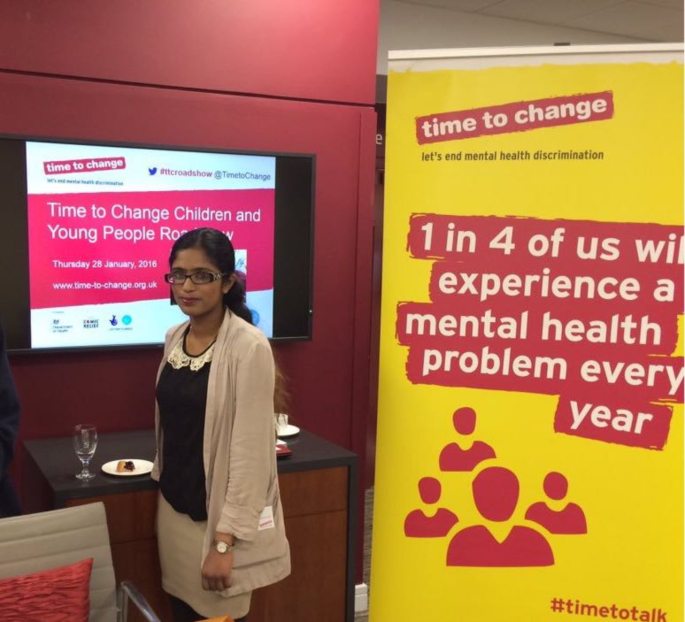
“We’re still people regardless of a diagnosis and that’s what people need to remember.”
Vithuja’s problems with mental health stemmed when she was a young girl. She was diagnosed with depression at the tender age of 12, after entering secondary school:
“As you will know, many Asian parents place a huge emphasis on education, and I feel that this enhanced the stress of moving to a high achieving secondary school.
“I went to a high achieving school, struggled to make friends, a combination of factors led to me feeling really depressed and I became suicidal.”
Initially, her issues with mental health were dismissed:
“When I asked my teachers about it, they brushed it under the carpet. They just told me I was being a ‘typical teenager.’ I wanted someone to notice and offer help but instead, I was seen as problematic. At one point I was referred to social services.”
However, what was thought to be a phase was later revealed as something much more insidious.
“I was referred by the school to counsellors, spoke to teachers – I didn’t really receive proper help until a failed suicide attempt at 12.
“Even after my diagnosis at 12, and I was very unwell at this point, they [teachers and peers] still turned a blind eye. They knew my diagnosis and they still questioned why I was acting the way I was. They didn’t treat me any differently.
“There was a girl who I thought I was close to and was someone I could speak to. It turned out that she told other people everything I had told her. Other people became my friend to know about me and left when they found out about my issues.”
Her bullies often took advantage of her on the social media site Formspring (now Spring.me) where users are free to post comments anonymously.
“They would say that I was lying about my mental health problems and that I was a fake. They said I was doing it for attention. One time, an answer said that I should just jump off the nearest building and kill myself.”
Vithuja’s battles with identity also came into play throughout her mental health journey. As she grappled with values of her conservative culture and liberal homeland, her mental state worsened.
“For me, I felt there was pressure to conform to both British and Asian culture. It certainly exacerbated my mental health difficulties and I didn’t feel I could talk about this with my family or friends. This is something that I’ve also discussed with one of my friends from a Bangladeshi origin and she’s shared similar feelings.”
As is the case for many Asians, Vithuja struggled greatly with confiding in her parents.
“They didn’t understand, I couldn’t [speak about it] in my immediate family and they didn’t feel able to speak to my wider family. So in a sense, they were as isolated as I was.
“It was really hard, mainly because I didn’t know about mental health itself but even when I did, my family didn’t. It’s very much a taboo subject that isn’t really discussed as such. There are a lot of misconceptions, and I think a lot of blame can be thrown around – parents blaming parenting, or blaming you for misbehaving.”
“My family would ask why I was doing this because they haven’t done anything wrong like it was a punishment. They couldn’t believe that my illness was real and put it down to teenage hormones.
“It would come up in everyday arguments and would be used as an attack. I think the most ignorant comment I have ever heard is: ‘perhaps you should self-harm when you are stressed too’.”
“When anyone is struggling with their mental health, my first suggestion would be to seek support. Talk about it, talk to friends, if you can’t talk to family. Seek support from university wellbeing services and the GP. Talking to family can be difficult, it may be easier to talk to siblings than parents, but I guess just remember that you’re family want what’s best and even if they don’t really know or understand, they will try.
“As a British Asian Student, I think it impacted my independence. Because my parents are aware of my difficulties, they are more protective of me and I feel more restricted in being able to go out and be independent and enjoy student life.
“In the Asian community they tend to think that unless something is going wrong, you shouldn’t have a reason to feel bad. It’s more difficult sharing mental health struggles with Asians as there are judgements. I’m scared they would judge me and my character rather than see it as it is – an illness.
“Sometimes when I am irritable or unlike myself, it can be seen as me being difficult whereas it’s usually me having difficulties again. On the flip side, because I have already had struggles, I feel better prepared for university, my parents are able to support me better to maintain how well I am.”
Her experiences have led Vithuja to study social work at university, where she aspires to aid families where a parent or child has struggled with mental wellbeing.
She advises young people to break the barrier and reach out.
“To help young people, I think that it would have been more helpful if it was discussed in schools. It’s not even about awareness, although knowing about the different illnesses makes it easier to identify. There are everyday small things young people can do which should be highlighted. What more can we do to help one another in those situations?
“I always liked the quote, ‘if it can’t get any worse, then it can only get better.’ Even though you feel like people don’t care, there is someone out there that does.”
Dhara’s Story
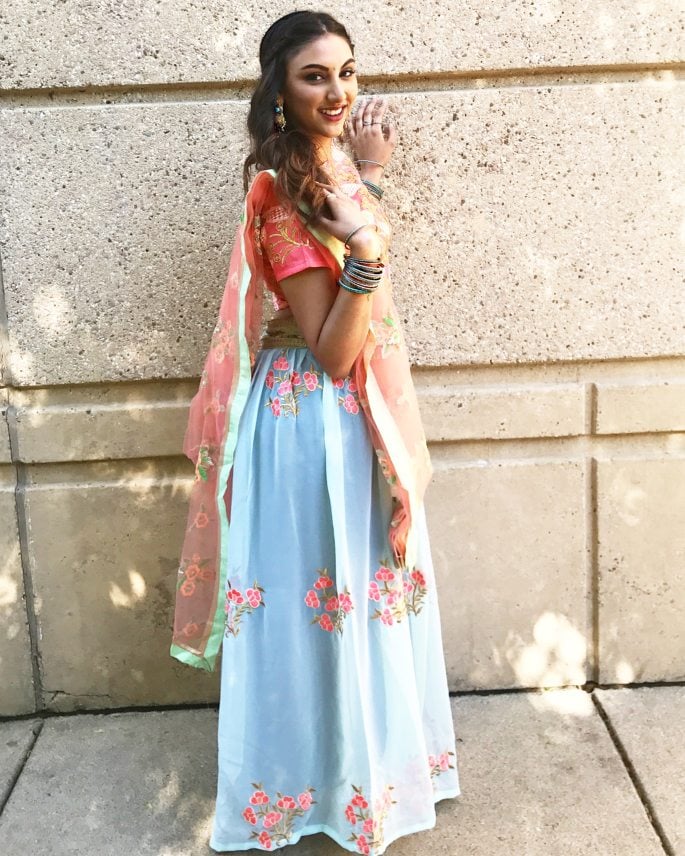
“I want to help alleviate this stigma and create a safe place for people within our community because it’s something we really need.”
Unlike Vithuja, Dhara’s story with mental health had no initial trigger. She spent the majority of her life oblivious to her mental illness.
“I’ve had anxiety for as long as I can remember. At first, I didn’t even know I struggled with anxiety or that it was negatively affecting my life by causing constant worrying and overthinking for even the smallest of things.
“I realised this problem was controlling every aspect of my life and trapping me in a constant cycle of second-guessing and anxiety induced stress.”
It wasn’t long before Dhara wished to pinpoint the origins of her perpetual overthinking.
“I first decided to educate myself about good mental health because I knew the importance of understanding one’s self rather than trying to reach ‘normality’ in an artificial manner.
“Eventually, I learned that this overthinking and worrying was actually anxiety and that many other people go through it. In the last few years, I’ve learned a few things that have really helped me use my anxiety to my benefit – as something that better prepares me rather than something that stops me from doing the things I want to do and being the person, I want to be.
“I’ve always had trouble with decision making, whether it be for something small or big. I’d often just avoid making the decision and feel stuck. Throughout my journey with anxiety, I looked for ways that helped me better cope with it.”
Whilst silent about her struggles with mental health, Dhara was reluctant to seek help. After facing her inner conflict, she made the bold step of attending a mental health support group.
“My first exposure to mental health was with my University’s chapter of NAMI (the National Alliance on Mental Illness).
“I had received emails from them on numerous occasions but had never taken the time to attend a meeting until I was in a place where I felt lost and alone.”
After a prolonged period of isolation, Dhara soon found her safe space through the NAMI community, becoming an active member and representative of the support group.
“Within the first few minutes of the meeting, I felt a strong sense of community and understanding. I quickly became very involved in the organisation and over the next three months, I became my chapter’s outreach chair.
“As outreach chair, I worked with other students, planned events, and talked to others about what they wanted to gain from NAMI. The following year I became more involved within NAMI as the events coordinator.
“NAMI played a large role in shaping my identity by introducing me to a community that I could turn to that would understand the things I was going through and ensure I didn’t have to deal with my issues alone. For my entire life, I’ve dealt with my own anxiety and more recently I was subject to bullying, which negatively affected my mental health. NAMI gave me a safe place and a group of people I could rely on.
“I loved the community NAMI brought, how it helped educate others about mental health and how important it truly is. While with NAMI we worked to try and destigmatise mental illness on campus, and this is a goal I’m passionate about expanding to the South Asian community.
“So many South Asians deal with mental health, but they feel like they have to suffer in silence because of the stigma in our community associated with it.”
Despite her genuine intentions in shifting the perception surrounding mental health, she has had her fair share of judgements from others within the community.
“I knew that going into this field there was a risk of backlash because people have so many misconceptions about mental health. However, I’m a mental health advocate and a psychology student because I want to help people that suffer from poor mental health.
“I remember talking to a doctor from my South Asian community about my goals, and he told me, “so you want to work with crazy people, aren’t you afraid you’ll become crazy in the process?”
“Over the next few days, I felt hurt, angry and deeply saddened that this was the perception of the field I was passionate about even by other health professionals.”
This crude remark became the catalyst for her commitment to mental health advocacy.
“The stigma, the misunderstanding of information, and the lack of conversation and education about mental health are reasons why people believe fallacies like that. I cannot blame that person for believing that because that’s all they know about psychology and mental health.
“They don’t know all the facts, the importance of them, and how mental health is important for every human being regardless of a formal diagnosis. So yes, I was afraid, but I’m not anymore because this is something so necessary for our community and it affects so many of us.”
Anita’s* Story
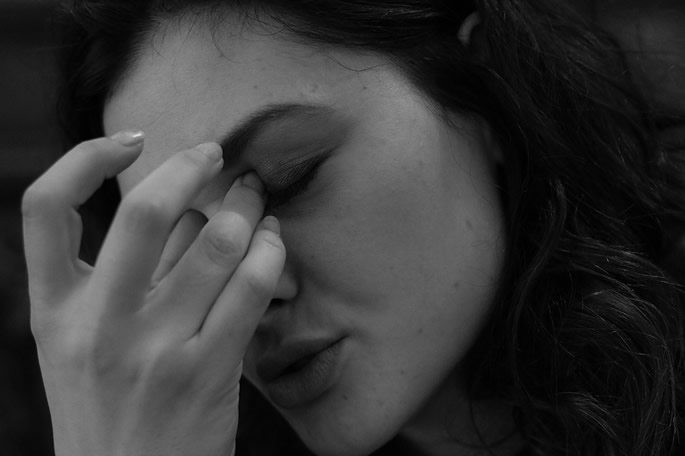
Like Vithuja, Anita’s* experiences with mental health derived from her unhappy school life.
“My issues with mental health started in secondary school when I was 12. I was bullied both verbally and physically by girls and boys respectively. I was finding ways to harm myself at this time.”
Initially, Anita* struggled to seek support from loved ones.
“I didn’t ask for help at this time. To be honest, I didn’t feel I could.
“I did various online quizzes to try and figure out what was wrong. All the quizzes said I was severely depressed. My mum knew something was wrong with me but didn’t know what exactly. I told my mum about it and she told me ‘not to put a label on it.’
“I kept it a secret until a school nurse found out that I attempted suicide at 13, who told my mum to take me to the GP, where I was referred to the mental health service. It was there where I was diagnosed with depression, anxiety and an eating disorder.
“At 14 I attempted suicide and was hospitalised. After many months in the hospital, my diagnosis had changed. I was now diagnosed with PTSD, depression and anxiety.
Eventually, Anita overcame her qualms and was able to confide in her family.
“Thankfully, I was blessed with very supportive parents. Once I had been officially diagnosed they supported me fully and visited me in the hospital as often as they could.
“There was always the occasional stigma here and there. Initially, they weren’t too happy about me taking medication, and a common question that arose was ‘what will your future husband think of all the scars?'”
“Within Asian communities, a lot is based on the idea of the implications it would have. People might just label you as crazy.”
However, she strongly upholds the view that South Asians are not the only community to undermine mental illness.
“Mental health is stigmatised across the board, across all backgrounds and cultures because it’s something you can’t see – it’s a physical entity – you can easily deny something you cant see.
“When you have a broken leg people can’t deny it because they can see it. No one can just tell you to get over it. But with mental health, it’s not like that. You can’t ever see the battles going through a person’s head. You can easily act like it’s not there.
“Even mental illness in women was seen as hysteria until relatively recently.
“With men, it’s considered a weakness to express any type of emotion – if you’re depressed or have PTSD there’s a lot of stigmas.
“With stigma comes death – I know it sounds morbid, but the whole stigma surrounding it is one of the reasons people are dying. They feel no one is helping them, no one can understand them. Stigma is killing people.
“If we start talking about it like diabetes or cancer then we could save so many lives, it would be tremendous. They would get to live. People would get to live their lives and live it to the fullest.
“It’s not like we just should break the stigma. We physically need to break the stigma, and to break it we have to talk about it.”
The Stigma of Mental Health within the South Asian Community
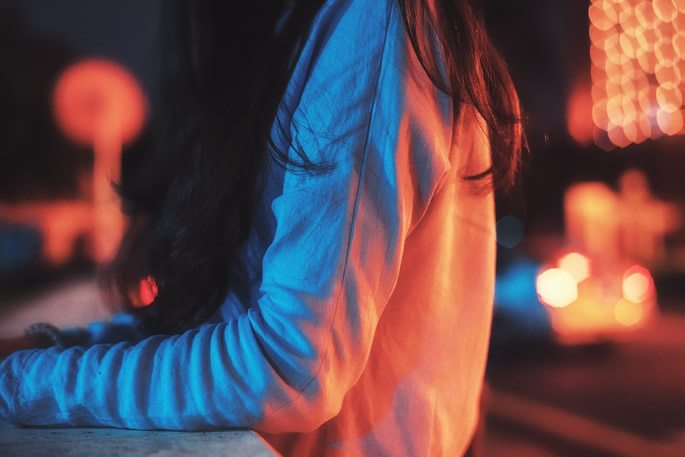
Research carried out by Rethink Mental Illness, Time To Change partner, has shown that mental health is a taboo, with some attitudes exclusive to the South Asian community. These include:
- Social pressure to conform
- Dishonour towards those with mental health issues
- Damaging of marriage prospects
British Indian actress and journalist, Meera Syal, most commonly known for her role in hit TV series, Goodness Gracious Me, also supports the cause:
“Mental health problems are common and affect people from all walks of life and all communities across England including the South Asian community. This is why I am supporting Time to Change’s work in this area.”
University student Anita* agrees that there is a stigma among the South Asian community regarding mental health: “For the most part, I preferred speaking to non-Asians about my mental health problems.
“When I spoke to Asians about it I would be slightly apprehensive as I didn’t know how they would take it or what they would think. It’s uncomfortable, especially if they’re older. If I’m having a rough day it’s tough to talk about it because they won’t talk about it – not because it’s their fault, but because it’s just too stigmatised in the community.”
South Asians are not the only ones to have turned a blind eye towards mental health. In the 1970s both Labour and Conservative governments failed to address the urgency to provide more resources to deliver mental health services in the area.
It was only in 1984 that the UK had implemented the Mental Health Act – in which the rights and treatment of people with a mental health disorder are enshrined.
Self-harming – Why?
The UK has the highest self-harm rate of any country in Europe with estimates of 400 in 100,000 people self-harming.
Yet, little information is provided as to why so many people embrace the destructive addiction.
Motives for self-harming vary – and there are often numerous contributing factors:
“I guess it’s just a way of coping with feelings that feel too much,” says Vithuja.
“It exists in many different forms. It’s not just cutting. It can include burning yourself or even scratching or pulling your hair out,” Anita* adds.
“People have different reasons for self-harm. One of my reasons was that I felt so empty and numb. I was a walking shell. I was craving to feel something. The only way I got that was through physical pain.
“I also felt I deserved to be hurt. If they’re hurting me then there must be something wrong with me so I needed to go through pain.
“Physical pain was easier to deal with than emotional pain. I wanted a distraction from physical pain. Masking emotional pain with physical pain.
“I would have hallucinations. I would see things, hear voices and feel paranoid. When I was being bullied and someone hit me or kicked me, I felt they were transferring evil into me, so the only way to get that bad out of me was to cut myself and watch it bleed out of me.
“It’s a twisted addiction. If there’s one thing I regret doing in my life it’s the first time I cut myself. It’s like any addiction: smoking, alcohol, drugs. It has taken me years to stop doing it. When the scars were fading, I felt like part of me was going away. So I’d reopen them. Self-harming had become a part of my identity.
“My entire thighs were covered in scars, but now only one part of my thigh has some scars remaining. Which is where professional help comes in. There are other ways to cope, you don’t need to punish yourself.
“All addictions are stigmatised – including this one.”
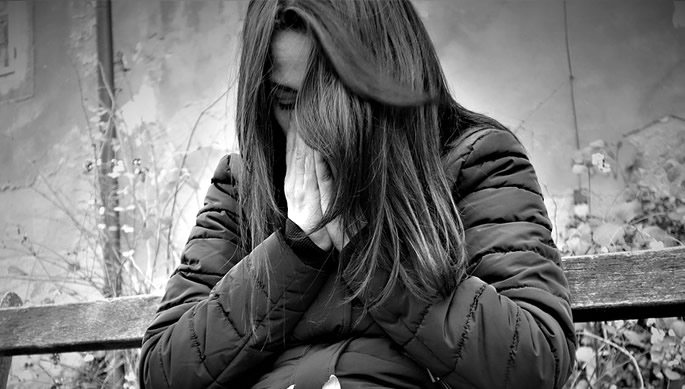
Getting Help
“It’s so important to seek professional help. If I didn’t I wouldn’t be here today,” says Anita.*
“It’s okay to be on medication, it’s okay to have bad days and to be hospitalised. It doesn’t make you any less of a person, less of a woman or less of a man. It just means you are working towards recovery.
“Recovery is a journey and when you’re ready to embark it then do so. It took me nearly 5 years to embark on this journey of recovery.
“As much as it may be painful to live, suicide isn’t the answer. It’s tempting, speaking from experience, as a quick solution. But there’s always light at the end of the tunnel whether you see it now or not.
“It will come with time, you have to keep fighting and you will be fine. You will become so much stronger and better having waded through the mud and having come out of it the other side.”
Whilst tenacious women like Vithuja, Dhara and Anita* are alive to tell their tale, others are met with a more unfortunate end.
Refusal to speak up only feeds the cycle of ignorance.
Although mental health still evokes great discomfort among the community, we cannot discount the millions of women fighting a battle on a daily basis.
Until the issue of mental health is brought to the surface, suicide and self-harm will always linger among us.
If you are affected by any of the themes in this article, please contact any of the following organisations:






























































